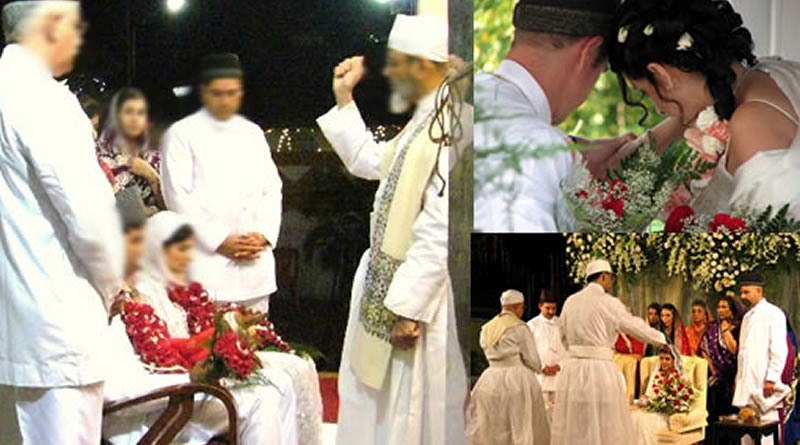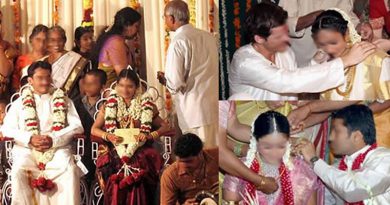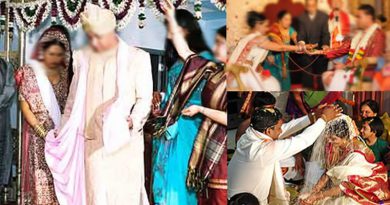Parsi Wedding and its traditional customs and rituals!
Fire is the supreme sacred element in the Parsee community and almost no ritual is complete without the use of fire.
GahoiMumbai.com is delighted to provide an insight to these Parsi Wedding traditions…
Parsi wedding is known as ‘Lagan’ and is conducted with great zeal and passion. The customs and traditions observed in the Parsi wedding are reasonably different from the traditional Hindu wedding. This makes them a lot more fun and exciting. The rituals performed during the marriage are quite simple otherwise and provide full opportunity for fun. But, like other regional weddings, Parsi weddings also have a number of rituals which extend over a week.
Parsi weddings ceremonies are traditional ceremonies comprising of three main elements. The rituals and customs in Parsi weddings are amazingly similar in concept to the traditional Indian weddings. The starting of the wedding is however similar to that of the engagement. The rituals are interesting to explore.
A Parsee wedding is full of fun and laughter. The `achoo meecho` (removing the evil eye) is performed practically before every single ceremony. The auspicious days to conduct marriages are either the first day of the month (`Hormazd Roj`) or the twentieth day of the month (`Behram Roj`). It is believed that on `Behram Roj` the angel of victory or `Behram` presides over the rituals. Most Parsee marriages take place in the evening, a little after sunset.
Pre Wedding Rituals in Parsi Wedding:
The Parsi marriages are known as Lagan. There are about five events that take place before the actual wedding ceremony.
A pre wedding ritual – Rupia Peravanu:
The Parsi wedding rituals begin with Rupia Peravanu ceremony. The Rupiya Peravanu ceremony in Parsi Weddings is the unofficial engagement that takes place in order to show the acceptance of the relationship.
A pre wedding ritual – Achoo Meechoo:
During the ceremony ladies from the groom`s family (usually 5 or 7 but never more than 9) proceed to the bride`s home. They are welcomed at the door by the bride`s mother, who performs the `achoo meechoo` (removal of the evil eye). This is always done at the doorstep and is a regular custom at marriages.
A female member of the family holds a silver/silver-plated tray, containing a `kutli` (spout less mug) of water, some rice, `sakar` (large sugar crystals), rose petals, a raw egg, a coconut and some `kharak` (dried dates). She first takes the egg and passes it around the head of the recipient six times in a clockwise motion, and once in an anti-clockwise motion. The egg is then broken on the ground, thus removing the evil eye completely. The exact same procedure is followed with the coconut.
In the same way as the egg and the coconut, the tray is then rotated around the head of the recipient and some water is sprinkled on both sides. After this the girl holding the tray hands over the rice and the `sakar` to the person performing the ceremony, who in turn puts the `sakar` into the recipient`s mouth. The rice is then thrown over the head of the recipient.
The recipient of the `achoo meechoo` now touches the feet of the person performing the ceremony and enters the house placing her right foot forward. After the `achoo meechoo`, the groom`s family members enter the bride`s home.
A pre wedding ritual – Madhavsaro:
Ladies from groom’s family visit the bride’s house and gift her silver coins and shagun. This ceremony is repeated at the groom’s house as the bride’s family visits them. Hereafter, Madhavsaro is observed. According to this, the families of the bride and the groom plant a tree in a pot separately. This pot is kept at the entrance of the houses and watered everyday till the eighth day after wedding and then planted somewhere else.
A pre wedding ritual – Adarni:
The next ritual is Adarni, wherein the groom’s family visits the bride’s place and gives her gifts like clothing and jewellery. The guests are treated with sev and dahi, boiled eggs and bananas.
A pre wedding ritual – Supra nu Murat:
Just a day before the marriage Supra nu Murat ritual is performed. This ritual is similar to the haldi ceremony planned in Hindus. The groom and the bride are applied turmeric paste by five married women.
A pre wedding ritual – Nahan: The next ritual is Nahan, in which the couple takes purifying bath after which they get ready for the wedding ceremony.
Wedding Rituals and Traditions in Parsi Wedding:
For a Parsi wedding a stage is set in a baug or agiary, the Fire Temple.
Achumichu Ritual:
Here, before the groom steps on the stage, the bride’s mother performs a ritual called Achumichu. She holds a tray containing a raw egg, supari, rice, coconut, dates and water. She circles all these items, except water, seven times around the groom’s head and throws on the floor. The water is thrown on either side. This is repeated by the groom’s mother for the bride.
Ara Antar Ritual:
The next ritual is Ara Antar, in which the bride and the groom are seated facing each other, with a cloth in between.
Chero Bandhvanu Ritual:
p After this, the priest circles the couple with a string, seven times. On the seventh round the couple is supposed to throw rice at each other from over the curtain. Whoever does it first, is supposed to rule the household. Now, the couple sits beside each other with the seven strands of string binding them. Oil lamps are lighted on each side and the priest begins prayer ceremony. This is followed by shower of rice and rose petals, after which the couple exchanges rings. This is called Chero Bandhvanu.
Haath Borvanu, Pag Dhovanu and Chero Chorvanu Rituals:
Next is Haath Borvanu, in which the bride’s sister puts groom’s hand in a water glass, throws milk on his shoes and removes the seven strands binding the couple, in lieu of token money.
Post Wedding Rituals in Parsi Wedding:
Parsi marriages are renowned for their grand Reception party. It is an ideal opportunity to experience the culture, dance, music and food of the community, at its best. The dinner is lavish four course meal, comprising of all Parsi delicacies. The marriage comes to an end with the couple leaving for their home and the groom’s mother once again performs the achumichu ceremony at their arrival.
Special Features of Parsi Wedding:
The Parsi weddings are full of interesting rituals and fun filled customs such as achumichu ceremony, Haath Borvanu, Pag Dhovanu, Chero Chorvanu Rituals, Chero Bandhvanu, Ara Antar Ritual, Madhavsaro Adarni etc. Even though many of the rituals are gaining modernity, the traditional methods are still conserved.
If you need any help regarding Parsi Wedding ceremony or Parsi Wedding Management, please leave your message about your dates, ideas and budget plans at our Wedding Help Centre.
All this information is free and only for informational purpose.




